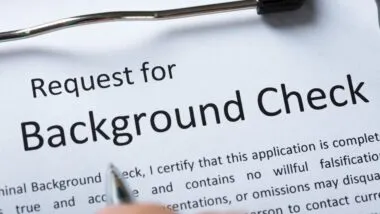
Regulators company fines overview:
- Who: Federal regulators, including the U.S. Securities and Exchange Commission, the Consumer Financial Protection Bureau and the Committee on Foreign Investment in the United States, recently issued fines against Keurig Dr. Pepper, TD Bank, Fifth Third Bank and T-Mobile.
- Why: The regulators issued the fines over allegations involving unlawful conduct.
- Where: The fines affect several U.S. companies.
Federal regulators recently levied fines against multiple companies, including Keurig Dr. Pepper, TD Bank, T-Mobile and Fifth Third Bank.
The fines resolved claims involving misleading statements, reporting false information to credit reporting agencies, failing to prevent a data breach, opening customer bank accounts without permission and imposing unnecessary auto insurance coverage.
SEC fines Keurig Dr. Pepper $1.5 million over K-Cup recyclability claims
The U.S. Securities and Exchange Commission fined Keurig Dr. Pepper $1.5 million earlier this month after accusing the company of misleadingly stating its K-Cup coffee and tea pods could be recycled effectively.
The SEC also ordered Keurig not to include inaccurate information when filing its annual reports with the agency. The claims stemmed from statements Keurig made in annual reports filed during fiscal years 2019 and 2020.
The agency argued Keurig failed to disclose that two recycling companies indicated they “did not presently intend to accept pods for recycling.”
“By not including this additional information, Keurig’s statements about the conclusion to be drawn from the testing concerning recyclability of pods were incomplete and therefore inaccurate,” the SEC says in the order.
CFPB orders TD Bank to pay $28 million
The Consumer Financial Protection Bureau ordered TD Bank to pay a $28 million fine earlier this month over claims the financial institution knowingly reported inaccurate information about consumer accounts to credit reporting agencies.
The CFPB argued an investigation found TD Bank, in addition to knowingly reporting inaccurate information to credit reporting agencies, both failed to correct its mistakes in a timely manner and failed to address potentially fraudulent accounts.
“The CFPB’s investigation found that TD Bank illegally threatened the consumer reports of its customers with fraudulent information and then barely lifted a finger to fix it,” CFPB Director Rohit Chopra says in a statement.
TD Bank must pay nearly $8 million to its customers for errors allegedly made by the bank regarding delinquent credit card accounts and bankruptcies. It must also pay more than $7.7 million to tens of thousands of consumers to whom the bank reported inaccurate and negative information.
T-Mobile fined $60 million after data breach reveals sensitive data
The Committee on Foreign Investment in the United States fined T-Mobile $60 million over claims involving a data breach the agency says occurred between August 2020 and June 2021.
The CFIUS argues T-Mobile violated a national security agreement it entered into in 2018 as part of its merger with Sprint by allegedly failing to take appropriate measures to prevent the unauthorized access of certain sensitive data.
“CFIUS concluded that these violations resulted in harm to the national security equities of the United States,” the agency says.
The CFIUS says it determined T-Mobile also failed to promptly report some of the incidents of unauthorized access, something the agency argued delayed its efforts to both investigate and mitigate any potential harm from the data breach.
CFPB fines Fifth Third Bank $20 million over alleged unlawful practices
The CFPB fined Fifth Third Bank $20 million in July over claims the financial institution opened customer bank accounts without authorization and failed to act quickly to rectify the issue after allegedly learning of it in 2010.
The agency claimed Fifth Third Bank also imposed unnecessary auto insurance coverage on car buyers by allegedly forcing it on borrowers with existing coverage prior to charging extra fees for the redundant coverage.
The CFPB also alleges Fifth Third Bank repossessed vehicles when the extra fees they allegedly charged caused customers to become delinquent on their payments.
“The CFPB has caught the bank illegally loading up auto loan bills with excessive charges with almost 1,000 families losing their cars to repossession,” CFPB Director Rohit Chopra says in a statement at the time.
In addition to the monetary fine, Fifth Third Bank also agreed to maintain records showing customers authorized newly opened accounts and set up procedures to address customers’ complaints and questions.
What do you think of the recent fines levied by regulators? Let us know in the comments.
Don’t Miss Out!
Check out our list of Class Action Lawsuits and Class Action Settlements you may qualify to join!
Read About More Class Action Lawsuits & Class Action Settlements:
- PNC Investments breached contractual duties with cash sweep accounts, class action claims
- Huntington Bank receives Cleveland Browns stadium naming rights, involved in NSF investigation
- FCC fines AT&T $13M over January 2023 data breach
- Teachers Insurance, Annuity Association class action alleges data breach impacted client info















258 thoughts onRegulators fine Keurig, T-Mobile, others
Yes please add me
Yes lease add me to the TMobile data breach class action suit. I have been with TMobile over 5 years. Thank you.
Add me please
Please Add Me!!!!!
For many years I have recycled the pods!! Add me please